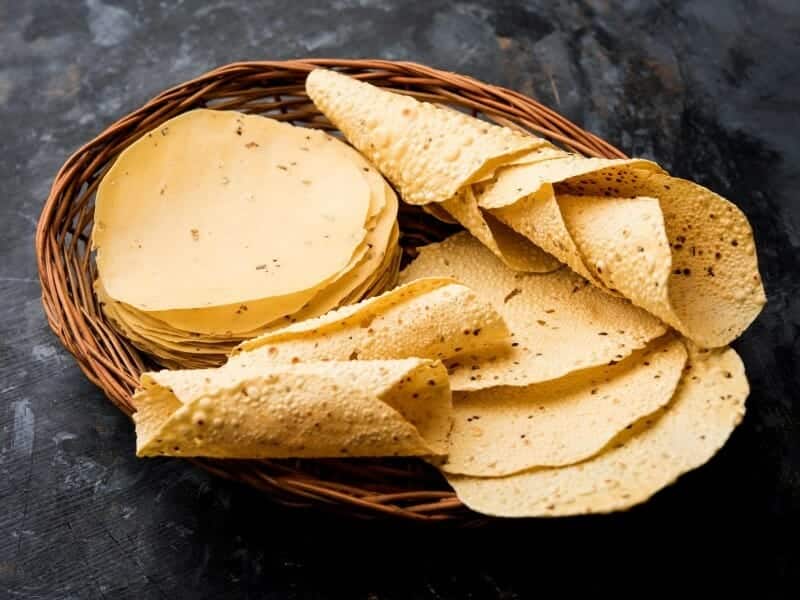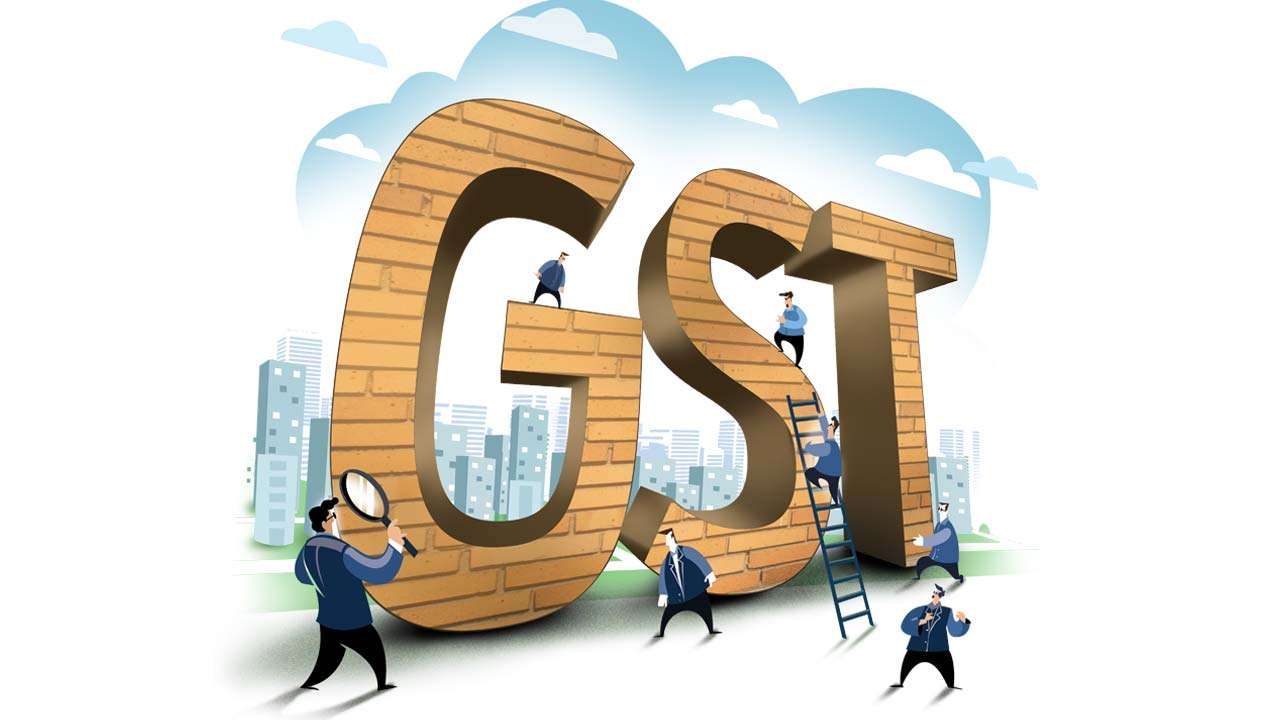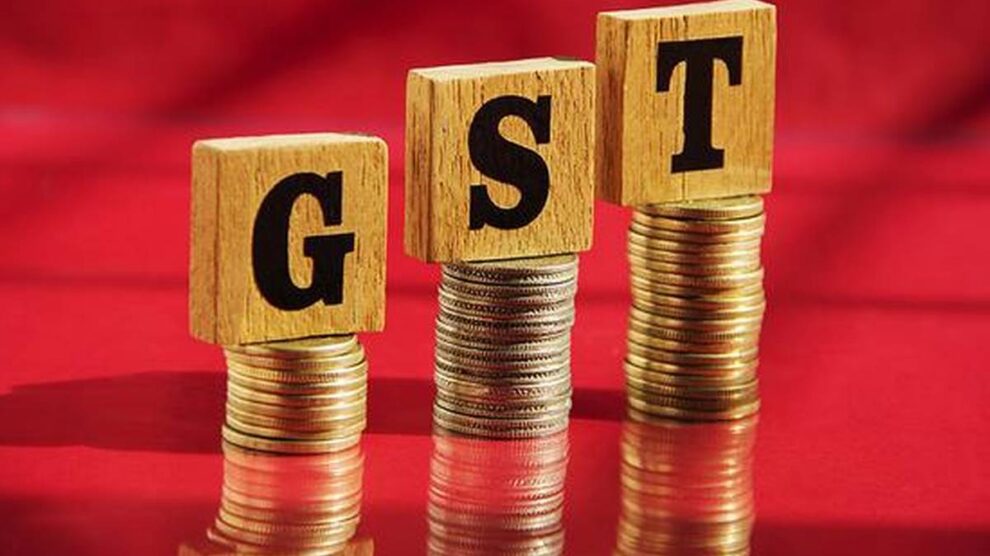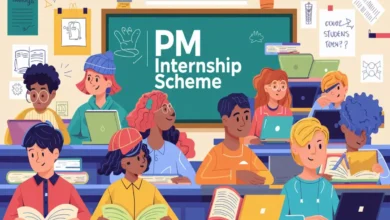GST Council Meeting on July 11: Papad and Kachri Likely to be Exempted from GST, Agenda Includes Other Key Discussions

GST Council Meeting on July 11: Papad and Kachri Likely to be Exempted from GST, Agenda Includes Other Key Discussions
The upcoming meeting of the Goods and Services Tax (GST) Council is expected to bring about changes in tax rates for specific food items. The focus is on reducing the tax rate for items like papad and kachri, which are currently taxed at 18 percent. The proposal under consideration is to either completely remove the tax or set it at a lower rate of 5 percent.
This potential adjustment aims to provide relief and support to the food industry, particularly in the case of non-fried snacks like papads and kachris. By reducing the tax burden, it is anticipated that businesses in this sector will be able to thrive and consumers will benefit from more affordable prices.

Conversely, the GST Council is also considering a potential increase in the compensation cess on certain vehicles. This measure is aimed at generating additional revenue to compensate for any reduction in tax rates on food items.
Overall, these discussions within the GST Council reflect an ongoing effort to strike a balance between supporting specific sectors and ensuring the sustainability of revenue streams. The proposed changes in tax rates for food items and vehicles demonstrate the Council’s commitment to making necessary adjustments to promote economic growth and address the needs of different industries.
The GST Council has scheduled a meeting on July 11 in the national capital to discuss various matters. One of the key agenda items is the taxation of online gaming, which has been a contentious issue. State finance ministers had previously deferred the decision on whether to tax online gaming at a rate of 28 percent on the full-face value of bets or the gross gaming revenue. It is anticipated that a final decision on this matter will be taken during the upcoming meeting.

The taxation of online gaming has been a subject of debate, and stakeholders have differing views on the most appropriate tax approach. The GST Council’s decision on whether to tax based on the full face value of bets or the gross gaming revenue will have significant implications for the online gaming industry and its consumers.
By addressing this issue, the GST Council aims to provide clarity and establish a consistent taxation framework for online gaming activities. The decision taken during the meeting will determine the tax liability for online gaming operators and potentially impact the pricing and operations of online gaming platforms.
In short, the meeting presents an opportunity for the GST Council to deliberate on this matter and arrive at a final decision that aligns with the broader objectives of the GST regime and addresses the concerns raised by stakeholders in the online gaming industry.

The forthcoming meeting of the GST Council will also include discussions on several other proposals. One of these proposals is to reduce the tax rate on drugs and food for special medical purposes from the current rate to 12 percent. This reduction aims to make these essential healthcare products more affordable and accessible to those in need.
Additionally, there is a proposal to reduce the GST rate on imitation zari thread or yarn from the current rate to five percent. This reduction is aimed at supporting the textile industry and promoting the use of imitation zari thread in various textile applications.
These proposals reflect the Council’s ongoing efforts to assess and revise tax rates to align with industry needs, consumer affordability, and the overall objectives of the GST framework. The aim is to strike a balance between ensuring adequate tax revenue and facilitating growth in specific sectors by providing tax relief or incentives where necessary.

The decisions taken on these proposals during the GST Council meeting will have implications for the concerned industries, consumers, and the overall tax framework. It demonstrates the Council’s responsiveness to industry demands and the commitment to creating a more conducive business environment.
The proposal suggests maintaining the existing tax rate of 18 percent for apple carton boxes, indicating no change in the tax treatment for this particular item. Similarly, there is no anticipated change in the tax rates for two-wheeler and four-wheeler flexi-fuel vehicles, which currently stand at 28 percent.
Regarding millet-based products, no decision is expected at the upcoming GST Council meeting, leaving the current GST rates of 12-18 percent unchanged for these products. Additionally, the Council may address the issue of whether the supply of food and beverages at cinemas should continue to be taxed at the existing rate of 5 percent.

Apart from these specific items, the GST Council is also expected to address the long-pending proposal for the establishment of a GST appellate tribunal. This tribunal would serve as a dedicated forum for resolving disputes between taxpayers and tax authorities, providing an efficient mechanism to address and settle such matters.
The outcomes of these discussions during the GST Council meeting will provide clarity on the tax rates and policies related to the mentioned items and dispute resolution mechanisms. It demonstrates the Council’s commitment to regular review and adjustment of the GST framework to address industry concerns, ensure consistency, and promote ease of doing business.




